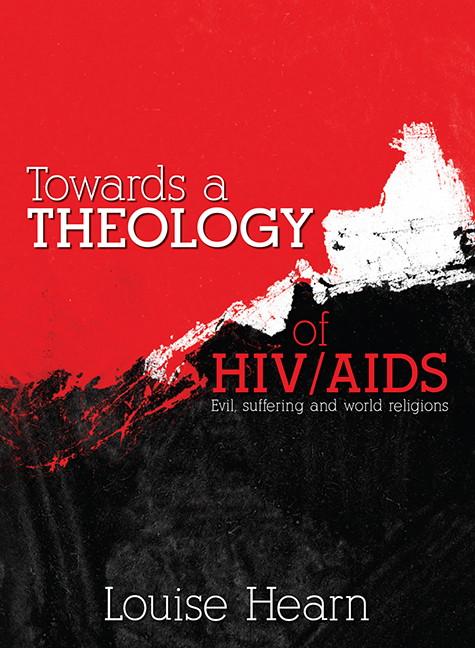Book contents
- Frontmatter
- Contents
- Foreword
- Chapter 1 Introduction
- Chapter 2 Evil and suffering
- Chapter 3 Inadequacy of theodicy
- Chapter 4 Understanding the interconnectedness of HIV/AIDS
- Chapter 5 Alleviating suffering due to AIDS
- Chapter 6 Towards a Theology of HIV/AIDS
- Appendix 1 Models for the interaction between text and reader
- Bibliography
- Index
Chapter 1 - Introduction
Published online by Cambridge University Press: 18 February 2020
- Frontmatter
- Contents
- Foreword
- Chapter 1 Introduction
- Chapter 2 Evil and suffering
- Chapter 3 Inadequacy of theodicy
- Chapter 4 Understanding the interconnectedness of HIV/AIDS
- Chapter 5 Alleviating suffering due to AIDS
- Chapter 6 Towards a Theology of HIV/AIDS
- Appendix 1 Models for the interaction between text and reader
- Bibliography
- Index
Summary
Evil and suffering seem to be inherent aspects of life, not just for human beings, but for the whole system of life on earth. If we then believe in a god, or gods, irrespective of which belief system we adhere to, this ubiquity of evil and suffering brings to us challenges and barriers which deeply influence our view of that god, or the gods, and also deeply influences our culture and worldview.
The understanding of different cultural and religious responses to evil and suffering is a fundamental aspect in seeking the development of collaborative endeavours between various faith systems and cultures to alleviate suffering. It also follows that one cannot fully understand different religious responses to evil and suffering without a knowledge of the belief systems of those religions.
So why worry? In the first decade of this millennium we have seen for example, the atrocity of 9/11 (September 2001) in the USA, the tsunami in Asia (December 2005), atrocities by the Janjaweed in Somalia (2003–2010), violence instigated through authoritarian rule in Zimbabwe (1995–2009) and the indiscriminate murder of civilians in Iraq (2003–current) and in Syria (current) all making headline news. ‘Bird flu’ and ‘swine flu’ appear repeatedly in the headlines, while HIV/AIDS, which is a truly huge cause of suffering and a mass killer of far more victims than these pandemics and disasters, has largely fallen from the media spotlight. What makes matters worse is that HIV/AIDS sufferers are commonly ostracised, victimised and stigmatised, and media attention is often focused on judging the afflicted instead of encouraging help for them. Poor countries, where the disease is more prevalent, are left with a continually growing problem of how to tackle the pandemic amidst their paucity of resources, yet they exist in a world where rich countries turn their back on basic human needs and rich and poor countries alike spend billions of dollars on defence budgets. Keenan is of the opinion that:
the number of lives lost to the tsunami approached 300,000. This tragedy generated billions of dollars of supported response within weeks. Although HIV/AIDS causes the same number of deaths every thirty-seven days, the will to commit concomitant resources to prevent such loss of life simply does not exist.
- Type
- Chapter
- Information
- Towards A Theology of HIV/AIDSEvil, suffering and world religions, pp. 1 - 6Publisher: University of South AfricaPrint publication year: 2013



